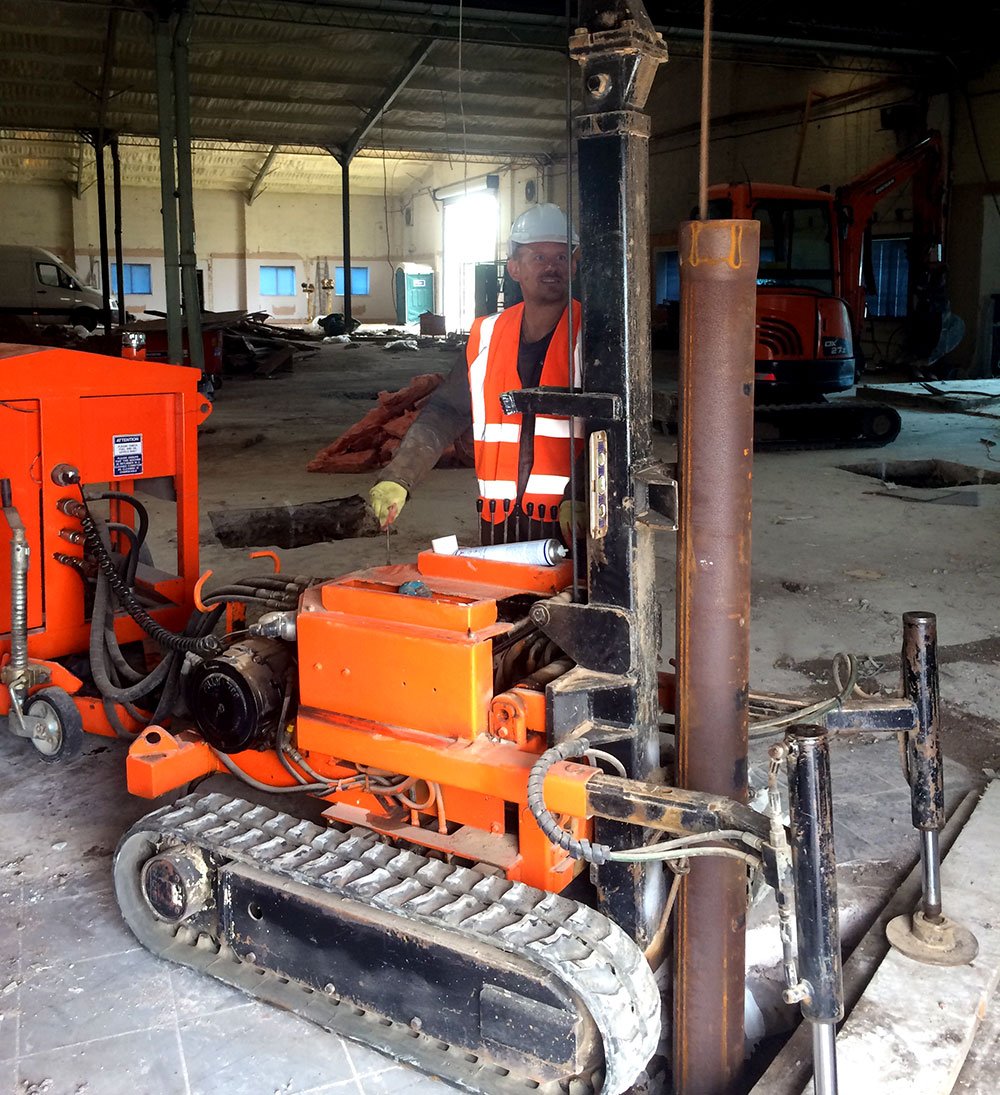In the construction business, piling services like Piling in Manchester are essential to the stability and durability of a wide range of structures, from big industrial complexes to residential buildings. For these services, piles are driven or drilled into the earth to create a sturdy foundation, particularly in difficult soil conditions. Anyone working in engineering, building, or property development has to understand the significance of piling services.
Gaining Knowledge of Piling Services
A method for shifting a structure’s weight to deeper, more stable soil layers called piling. Pile construction is the process of pushing or drilling long, thin columns into the earth. The type of pile to use for a given construction, soil conditions, and load requirements all have a role in the selection of pile materials, which can include steel, concrete, or wood.
There are various piling systems, and each is appropriate for a particular set of ground circumstances and building requirements:
Piles Drivers:
These are prefabricated piles that a pile driver drives into the earth. They work best in loose or soft soils where the support they need is provided by driving them down to an appropriate depth.
Drilled Piles:
These are made by boring a hole into the ground and filling it with concrete; they are sometimes referred to as drilled shafts. They work well in situations with hard or deep soil where driving piles might not be feasible.
Sheet Piles:
They are frequently used to build cofferdams in flooded areas or to form a continuous wall for retaining structures. Usually constructed of steel, they interlock to create a tight barrier.
Micro Piles:
These are also known as micropiles, and they are employed in scenarios with restricted access or extremely difficult ground conditions. They entail boring holes with tiny diameters, filling them with steel reinforcement and concrete.
Significance of Support Services
One cannot stress the importance of piling services like Piling in Liverpool in the construction industry.
Resistant Weight:
By piling, the structure’s weight is dispersed over deeper, more stable soil layers. This is especially crucial in regions where the surface soils are brittle or unstable. Buildings and other structures would be vulnerable to settling, moving, or collapsing in the absence of sufficient piling.
Stability of Foundation:
Pilings give foundations more stability in areas vulnerable to natural calamities like earthquakes and floods. Deep piles securely anchor structures, lowering the possibility of damage from liquefaction of the soil or seismic activity.
Adaptability in building:
Piling services can be used in a range of building settings. Piling procedures can be adjusted to match the unique requirements of the project, regardless of whether it is being built on reclaimed land, over water, or on sloping terrain.
Attention to the Environment:
Environmental impact can be reduced by designing modern piling techniques. For instance, employing low-noise or vibration-free piling techniques lessens disruptions to the neighbourhood, which is important in urban or environmentally sensitive areas.
Economic Viability:
Even though piling may seem expensive at first, it frequently ends up being more economical in the long term. An expertly done piling work can save expensive maintenance and repairs linked to foundation issues. It can also speed up the building process, cutting down on project schedules and related expenses.

Uses for Piling Services
There are several different types of construction projects that employ piling services:
Homeownership Structures:
Pilings offer a sturdy foundation for houses built on shaky ground or next to bodies of water, guaranteeing their lifespan and safety.
Business and Industrial Structures:
Strong foundations are necessary for large buildings, such as factories, warehouses, and office buildings, in order to sustain their substantial weight and daily operations.
Highways and Bridges:
Infrastructure projects frequently cross a variety of topography, necessitating dependable foundation solutions. Piling keeps these structures secure and safe to occupy.
Aquatic Structure:
Piling is essential to the resilience of ports, jetties, and offshore platforms in the hostile sea environment. These constructions are supported by pilings drilled into the seafloor.
Basements and Retaining Walls:
Deep basements and retaining walls are standard features in urban development. Piling ensures the structural stability of a structure by controlling ground forces and preventing soil movement.
Pilings transport loads to stable soil layers, ensuring the structural integrity and longevity of infrastructure and buildings. Piling techniques are extremely versatile and adaptable, which makes them ideal for use in a variety of construction settings, ranging from major industrial complexes and vital infrastructure projects to residential residences.





Эта статья для ознакомления предлагает читателям общее представление об актуальной теме. Мы стремимся представить ключевые факты и идеи, которые помогут читателям получить представление о предмете и решить, стоит ли углубляться в изучение.
Разобраться лучше – https://vyvod-iz-zapoya-1.ru/
4 iu hgh a day
References:
hgh fat loss cycle – https://www.24propertyinspain.com/user/profile/1160681 –
4 week dianabol cycle
References:
dianabol cycles
what steroids do female bodybuilders use
References:
best shredding supplement stack
cjc 1295/ipamorelin and testosterone reddit
References:
cjc ipamorelin For sale – Sfenglishlessons.com –
does ipamorelin nasal spray work
References:
buy bulk ipamorelin